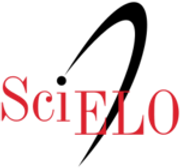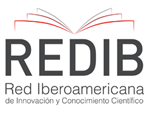The mural in the modern architectural space. Integration between painting and architecture in the former Ministry of Public Education of Peru
DOI:
https://doi.org/10.21754/devenir.v11i21.1723Keywords:
Historical center of Lima, modern heritage, muralismAbstract
Combine painting and architecture is a principle that artists of the first half of the 20th century considered fundamental to their approach to a unitary project. This article analyzes the pictorial works, in connection with their environment, inside the former Peruvian Ministry of Public Education building made between 1951 and 1956 by the architect Enrique Seoane Ros. The objective is to know the type of link between these creations and the space that contains it. For this purpose, we have applied the historical-critical method based on publications and visits to the referred place. The conclusions are related to the idea that the murals are integrated into modern thought, under artistic-political convergences and influences of the Bauhaus ideology, Le Corbusier’s theories and what Siqueiros called “Integral Plastic”. Finally, we find that these paintings qualify their architectural environment as an intrinsic value that transforms spatial perception.
Downloads
References
Álvarez Ortega, S. (2006). La formación en arquitectura en el Perú. Antecedentes, inicios y desarrollo
hasta 1955. Inifaua. Universidad Nacional de Ingeniería.
Agrupación Espacio. (junio de 1947). Declaración de principios de la Agrupación Espacio. El Arquitecto
Peruano, 119, s. d.
Arnheim, R. (1985). El pensamiento visual. Paidós.
Ayarza Uyaco, L. (2002). Juan Luis Pereira. Pintura mural peruana del siglo XX. Catálogo. Coordinación
general: Nanda Leonardini (Vol. IV). Texto inédito.
Bentín Diez Canseco, J. (1989). Enrique Seoane Ros. Una búsqueda de raíces peruanas (pp. 186-190,
-215). Índice Editores Asociados.
Ballart, Josep (2002). El Patrimonio histórico y arqueológico: Valor y uso. Editorial Ariel.
Bryant, G. (1997). El concepto de Gesamtkunstwerk. Cuaderno de Notas, (5), 57-76. http://polired.
upm.es/index.php/cuadernodenotas/article/view/790
Cáceres Atocha, R. (2001). Teodoro Núñez Ureta. Pintura mural peruana del siglo XX. Catálogo. Coordinación
general: Nanda Leonardini (Vol. I, pp. 81-82). Seminario de Historia Rural Andina. Universidad
Nacional Mayor de San Marcos.
Castrillón, A. (marzo del 2002). De abstracciones, informalismos y otras historias… Instituto Cultural
Peruano Norteamericano - Banco Sudamericano.
Ciriani, E. (2014). Todavía la arquitectura. Arcadia Mediática.
Corvetto, G. (2001). Sabino Canales Springett. Pintura mural peruana del siglo XX. Catálogo. Coordinación
general: Nanda Leonardini (Vol. III). Texto inédito.
García Bryce, J. (1965). Homenaje a Le Corbusier. Facultad de Arquitectura, Urbanismo y Artes de
la Universidad Nacional de Ingeniería.
Guter, E. (2010). Aesthetics A-Z. Edinburgh University Press. Proquest Ebook Central, http://
ebookcentral.proquest.com/lib/upc-ebooks/detail.action?docID=624264
Huapaya Espinoza, J. C. (2021). Fantasmas corbusieranos en el Perú: divulgación, articulaciones y reflexiones,
-1965. Perspectivas: Revista Científica de la Universidad de Belgrano, 4(4), 149-166.
Jeanneret, Ch. E. & Ozenfant, A. (1994). Acerca del purismo. Escritos 1918-1926. El Croquis Editorial.
Lavarello de Velaocheaga, G. (2009). Artistas plásticos en el Perú. Siglos XVI-XVII-XVIII-XIX-XX. Pacasmayo.
León Morales, J. (2001). Manuel Ugarte Eléspuru. Pintura mural peruana del siglo XX. Catálogo.
Coordinación general: Nanda Leonardini (Vol. I, pp. 155-156). Seminario de Historia Rural
Andina. Universidad Nacional Mayor de San Marcos.
López, M. A. (2019). La forma de las cosas. Breve recuento de la crítica al ornamento en el contexto
de la Bauhaus. Agenda Cultural Alma Máter, (263). https://scholar.googleusercontent.
com/scholar?q=cache:8bEpr9IOUX4J:scholar.google.com/+gesamtkunstwerk+bauhaus&
hl=es&lr=lang_es&as_sdt=0,5
López Portillo Tostado, F. (2017). El gobierno militar de Manuel A. Odría en Perú (1948-1956):
un vistazo diplomático. Universidad Nacional Autónoma de México Ciudad Universitaria,
Delegación Coyoacán. http://www.librosoa.unam.mx/bitstream/handle/123456789/415/
Gobierno%20Odri%CC%81a.pdf?sequence=2&isAllowed=y
Mallet-Stevens, R. (marzo de 1999). L'Exposition des Arts Décoratifs à Paris en 1925. Les amis de la
Villa Cavrois. https://www.villacavrois.org/1999/03/lexposition-des-arts-decoratifs-paris.html
Ministerio de Cultura. (2020). Propuesta Técnica para la declaratoria de Monumento integrante del
Patrimonio Cultural de la Nación de la ex sede del Ministerio de Educación.
Moreno Moreno, M. P. (2019). Fernand Léger: Pared-arquitecto-pintor. Cromatismo espacial.
Rita: Revista Indexada De Textos Académicos, (11), 166-177. http://ojs.redfundamentos.com/
index.php/rita/article/view/421/377
Real Bazán, F. (2001). Carlos Quíspez Asín. Pintura mural peruana del siglo XX. Catálogo. Coordinación
general: Nanda Leonardini (Vol. I, pp. 114-116). Seminario de Historia Rural Andina. UNMSM.
Román, E. (10 de junio de 2000). El Siglo XX en las artes plásticas peruanas. Copé, X(23), pp.14-20.
https://cultura.petroperu.com.pe/biblioteca-cope/revista-cope-vol-veintitres/
Roth, L. M. (1999). Entender la arquitectura: Sus elementos, historia y significado (1ª ed.). GG.
Siqueiros, D. A. (1979). Cómo se pinta un mural. Ediciones Taller Siqueiros Venus y Sol Jardines de
Cuernavaca. https://bit.ly/3BuAIRH
Souza, A. M. (30 de agosto del 2012). El naturalismo de Rivera y Portinari: el arte como posibilidad
de reflexión crítica y mediación con la realidad social [Trabajo de conclusión del curso de licenciatura
en Artes Visuales]. Instituto de Artes de la Universidad de Brasilia. http://bdm.
unb.br/bitstream/10483/5650/1/2012_AdelsonMatiasSouza.pdf.
Trahtemberg, L. (10 de junio del 2000). Evolución de la Educación Peruana en el Siglo XX. Copé,
X(23), p. 10. https://cultura.petroperu.com.pe/biblioteca-cope/revista-cope-vol-veintitres/

Downloads
Published
How to Cite
Issue
Section
License
Copyright (c) 2024 Devenir - Journal of studies on built heritage

This work is licensed under a Creative Commons Attribution 4.0 International License.
Articles published by DEVENIR can be shared through the Creative Commons international public license: CC BY 4.0. Permissions beyond this scope can be consulted through the email revistas@uni.edu.pe










